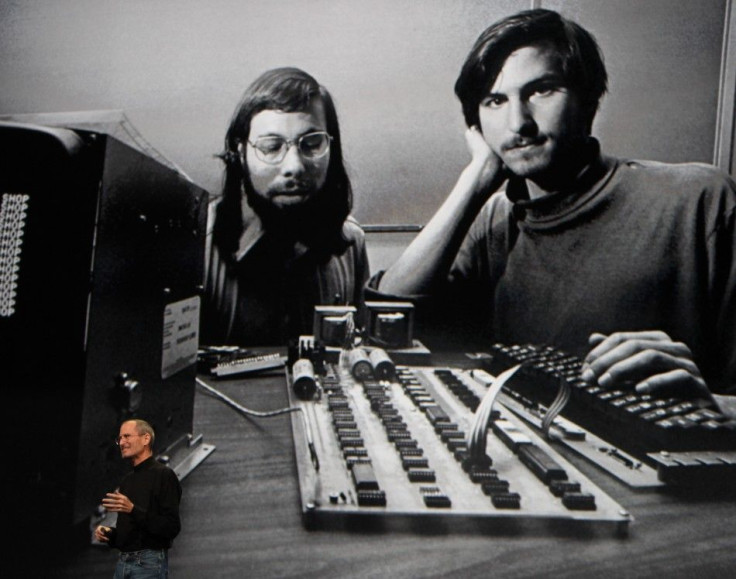Steve Jobs Dies: The Rivalry Between Jobs and Gates, 'Pirates of Silicon Valley'

If Steve Jobs ever had a competitor, that was Microsoft Chairman Bill Gates. Hailed as visionaries, Jobs and Gates framed the A to Z of personal computing while competing for domination of the tech world.
Living up to the spirit of a golden era that they shared, Gates led the tribute to Jobs, after Apple announced the untimely death of its former CEO, who was battling a rare and aggressive form of pancreatic cancer.
Gates said he was truly saddened to hear of Jobs' passing and saluted the profound impact he had on the world.
I'm truly saddened to learn of Steve Jobs' death. Melinda and I extend our sincere condolences to his family and friends, and to everyone Steve has touched through his work, Gates said in a statement.
Steve and I first met nearly 30 years ago, and have been colleagues, competitors and friends over the course of more than half our lives.
The world rarely sees someone who has had the profound impact Steve has had, the effects of which will be felt for many generations to come.
For those of us lucky enough to get to work with him, it's been an insanely great honor. I will miss Steve immensely.
The Apple-Microsoft rivalry caught the popular imagination. The 1999 film Pirates of Silicon Valley, based on the book Fire in the Valley: The Making of The Personal Computer, documented the rise of the personal computer through the rivalry between Apple Computer and Microsoft. The film starred Anthony Michael Hall as Bill Gates and Noah Wyle as Steve Jobs.
One of the central themes of the movie represents a young Jobs, who, while participating in aspects of the counterculture of the 1960s, interprets his role in it differently.
Wyle stated in an interview with CNN, These kids grew up 30 miles south of the Berkeley campus, which was ripe with revolution ... and they couldn't have cared less about the politics going on. They were in the garage tinkering with their electronics and starting a revolution that was a thousand times greater than anything that was going on the college campuses, politically.
Director Martyn Burke noted in an interview, Steve Jobs and Bill Gates are the true revolutionaries of our time. Not the students who occupied the dean's office in the late '60s. Not the anti-war marchers who were determined to overthrow the establishment. Jobs and Gates are the ones who changed the way the world thinks, acts and communicates.
Jobs indirectly commented on the film during a practical joke at the 1999 Macworld Expo, when Wyle impersonated him during the keynote speech, to the wild applause of the audience. Jobs corrected Wyle's interpretation of him and told the audience that he invited [Wyle] here today so he could see how I really act and plus because he's a better me than me.
Wyle responded, Thank you, thank you, I'm just glad you're not mad about the movie. Jobs laughed and stated, What? Me upset? Hey it's just a movie. But you know if you do want to make things right you could get me a little part on E.R.
Video:
In his famed 1994 interview with the Rolling Stone magazine -- the period during which he was the head of the short-lived NeXT Computer -- Jobs talked about Microsoft and Gates, without sounding like a desperate rival.
I see Microsoft competing very fiercely and putting a lot of companies out of business --- some deservedly so and others not deservedly so. And I see a lot of innovation leaving this industry. What I believe very strongly is that the industry absolutely needs an alternative to Microsoft. And it needs an alternative to Microsoft in the applications area,, which I hope will be Lotus. And we also need an alternative to Microsoft in the systems-software area. And the only hope we have for that, in my opinion, is NeXT.
An obsessive genius turned visionary CEO, Jobs leaves a legacy that should long endure.
© Copyright IBTimes 2024. All rights reserved.












